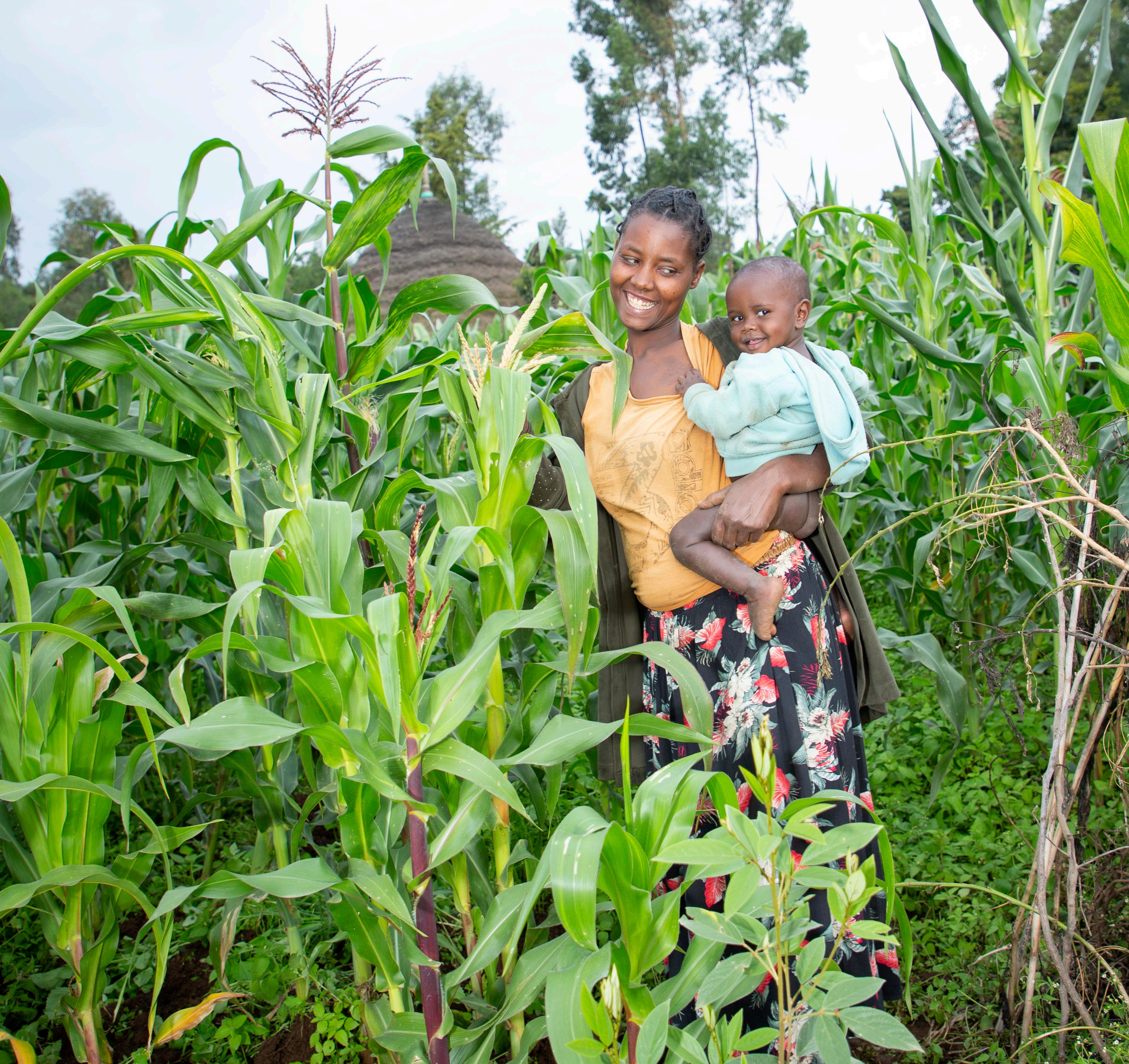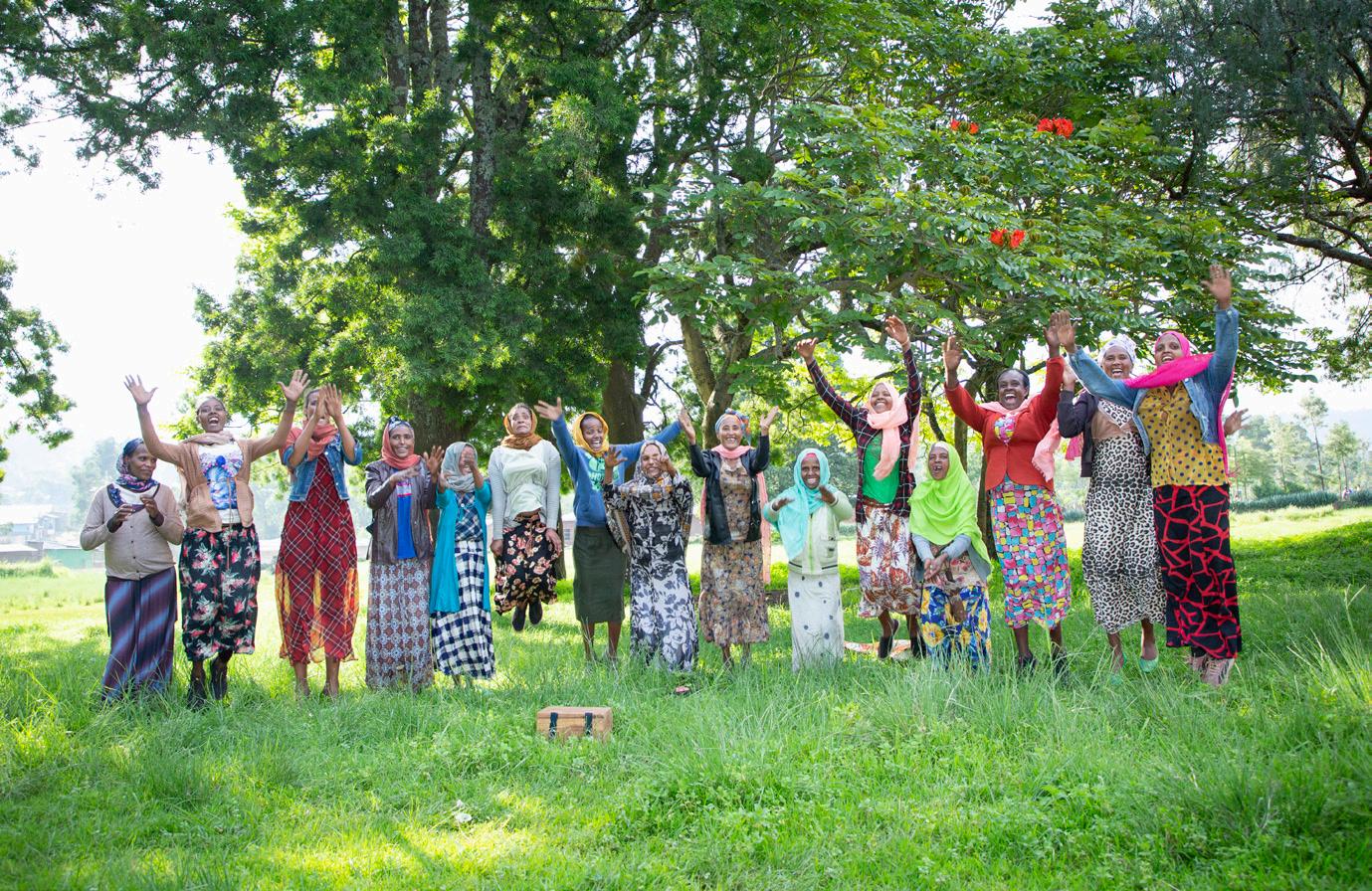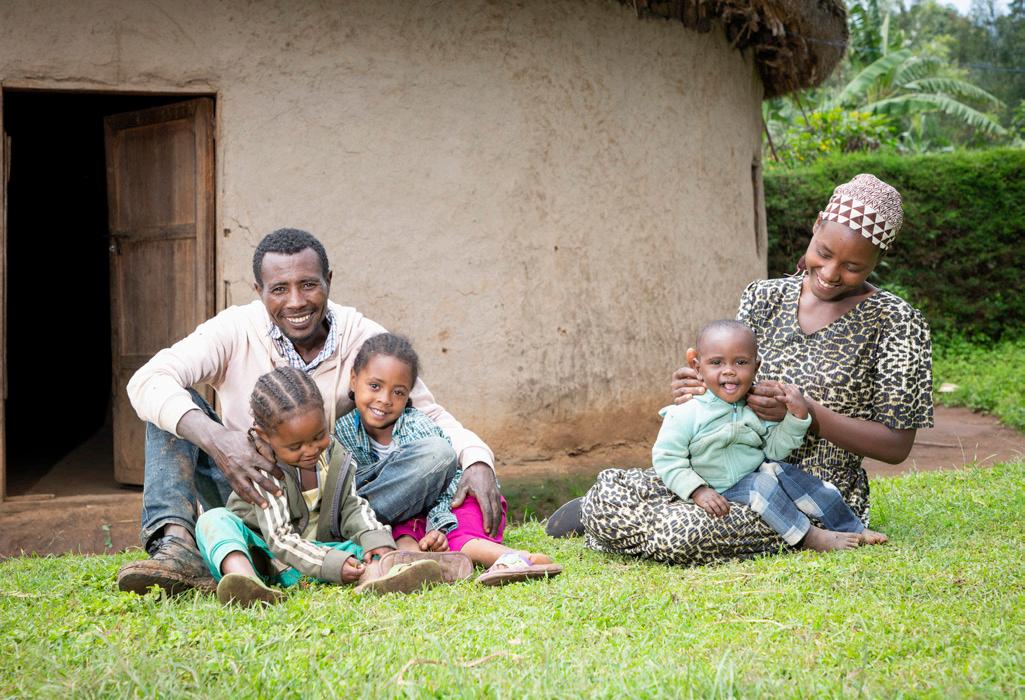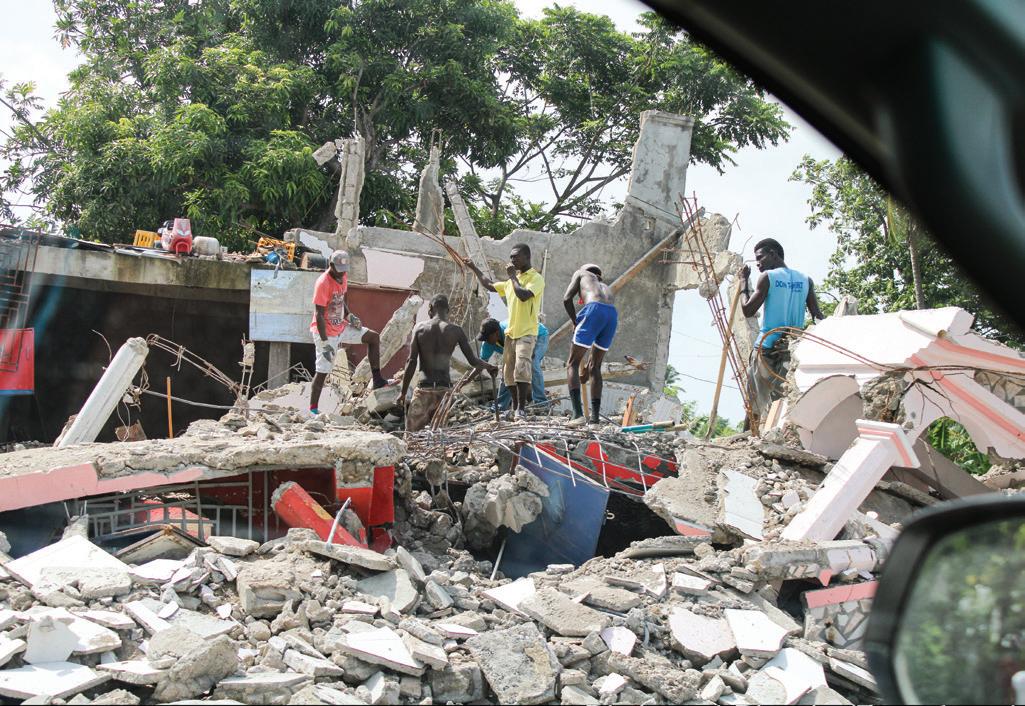
8 minute read
Weathering the storm
Weathering
the storm
Liz Hughes reports on PCI’s World Development Appeal for 2021.
For many in the world, the Covid-19 pandemic will continue to wreak havoc for years to come. Combined with a changing climate, and the increased uncertainty and extreme weather events which that brings, millions face a very real threat: a perfect storm of Covid and climate. As creation groans, so many communities are struggling to sustain even the most basic of livelihoods, fighting hard to provide for their families and loved ones.
We ask what can we do – and our PCI World Development Appeal (WDA) offers us all an opportunity to do something significant. We thank God that in 2019 our WDA, ‘Farming God’s Way’, featuring Mozambique, was supported by 70% of PCI congregations, raising a magnificent £573,484.
Last year, for practical reasons we moved to a Moderator’s Christmas Appeal which was well supported – raising an encouraging £362,910.
Over this summer there have been emergency humanitarian crises in both the countries featured in this year’s World Development Appeal: in Ethiopia, where many folk have been impacted by a severe drought creating near famine conditions compounded by conflict; and in Haiti which was hit by an earthquake disaster resulting in a tragic loss of life and many damaged homes. In both situations these emergencies have been made even more devastating and dangerous because of the ongoing challenge of both Covid and climate change. By God’s grace, in this year’s appeal, we hope to support those who have moved past the immediate urgent need, to a situation where ongoing sustainable development is making a difference.

Ethiopia
This year’s lead project comes from Ethiopia through Christian Aid Ireland, working with their local partner, the Ethiopian Evangelical Church Mekane Yesus Development and Social Services Commission (EECMY-DSSC), which carries the motto: ‘serving the whole person’. This commission set up by EECMY is committed to holistic ministry, encompassing spiritual, psychological, social and physical human need. The history of the organisation goes back over 130 years when missionaries came from Europe and were involved in teaching and the construction of schools. The development work was small scale at that stage but grew over the years.
The EECMY has projects funded by Christian Aid to minimise the spread of Covid-19 among refugee camps, to supply shelter and recovery support to conflict affected communities, and to support smallholder farmers to produce quality crops such as peanuts.
With an ever-increasing population of over 115 million, Ethiopia is presently the second most populated country in the continent of Africa. It is also one of the poorest. Recent months have seen a rapid increase in Covid-19 cases with the accelerated spread of the delta variant. Many millions of people have also been affected by climate change-induced drought, which has caused failed harvests and loss of livestock.
Terfasa Meko, EECMY’s Development Commission’s coordinator in the Northern Region, tells us further, “Malaria used to be something that only occurred in the lowlands, but as a result of the changing climate it is seen much further afield. Cattle-raising is extremely common as a livelihood in Ethiopia and it is increasingly difficult due to a shortage of grazing land. The season of rain is changing and is much more unpredictable and erratic – rainfall is less frequent but, when it does come, causes flooding and destruction.”
Our WDA project is about providing support to farmers in the communities of Demboya, Lemo, Soro, Mida-Kegn, Berehe and Ambo. The specific project PCI is supporting – ‘Ecological food and

Stories of change in Ethiopia
There are encouraging stories that are emerging from EECMY’s Development and Social Services programme.
Yohannes Forsido, a social worker and local staff member, describes one of the projects in Lemo: To help our community adapt to the effects of climate change, we developed the Eco Farm project. There are three main aims of the project: 1. To reduce 3,100 households from five months of starvation down to two months. 2. To make 1,500 households productive by increasing soil fertility. 3. To increase the annual income of 680 mothers by 100%.
One of the main ways we have achieved this is through women’s self-help groups, each with 20 members. The groups participated in agriculture and other training. They learnt about drought resistant crops, managing the land and raising poultry, goats and cows. As a faith-based organisation, we have a devotion time together and also do evangelism indirectly by showing a life of Christ-likeness in the community. Tigest Melese says: “I joined this project two years ago. The training provided a good understanding of agriculture, ensuring food security. We have been given a variety of root crops, including potatoes, sweet potatoes, coffee seeds and avocado. We are growing vegetables and fattening goats, then we sell them. As a result, our saving culture is improving. Our greatest achievement is that we can provide healthy food for our children. They are healthy and safe.” Tigest belongs to the local church mothers’ group and says, “I have a lot of knowledge from the church in the Word of God, which has dramatically changed my life.”



agricultural farm resource management’ – is, in part, in response to climate change. There are two branches to the work and this is how Terfasa describes it:
Crop diversification and natural
resource management. There is a shortage of farmland so EECMY-DSSC works with farmers to best utilise their small plots with the right crops (root vegetables, cereal crops), and to better manage the soil and water. They ensure the plots yield more food. They teach people organic farming and help them to adapt to the changing climate.
Women’s economic empowerment.
This is focused on setting up self-help groups for women, with about 20 women per group. They want to help women to grow in confidence and play a greater role in decision making in homes and families (the tendency is for the men to take on all decision making). These groups help women to save and then they can get loans to set up small businesses, whether making injera bread or a poultry business, for example. They also work with the husbands. The organisation’s experience is that women are really keen to implement the changes as they believe their lives, and the lives of their families, will improve. One very evident change is that now they can have 2–3 meals per day, whereas before that would have been very difficult and a struggle.
The local church where many attend is called Heto Mekaneyesus Church. Along with the development work, the church has been providing spiritual service to the local community for many years.
Terfasa speaks about his personal faith motivation, feeling “called to serve the population” and that, as a Christian, he wants to contribute to the development of the community. While funding is always a struggle, there are many encouragements. Terfasa feels encouraged by seeing changes in the life of communities. For example, children whose parents couldn’t afford to send them to school later being able to attend, then going on to university. He feels encouraged when he sees change in the lives of farmers through the agricultural practices they learn, and through a range of ‘income generating activities’ – a small amount of money can change people’s lives. They are training people to make long-term changes, and to help themselves.
The Haiti project…aims to support churches and schools to reduce the… poverty that families face.
Haiti
The second WDA project is with a Tearfund partner based in Haiti. The recent earthquake has underlined the fragility and challenges of the country’s economy.
The Haiti project we are focusing on aims to support churches and schools in the departments of Nippes and Artibonite in Haiti to reduce the vulnerability to poverty that families
Teams work to clear ruined buildings in the aftermath of the deadly earthquake that struck the southwest peninsula of Haiti on Saturday 14 August 2021. The earthquake left more than 2,000 people dead and destroyed/damaged more than 70,000 homes. Within the first 10 days after the earthquake Tearfund reached 2,500 people with a food and hygiene kit and 5,250 people benefited from an immediate cash transfer of 50 USD. face. This will be achieved through the planting of gardens and trees which can be a source of income, and protect the local environment. These are the two main projects but, of course, our appeal covers a number of similar projects in other areas of the world as well. Rev Dr Liz Hughes is convener of PCI’s Council for Global Mission and minister emeritus of Whitehouse Presbyterian Church.
Now over to you:
Pray: for the people this appeal represents in Ethiopia and Haiti and other vulnerable parts of the world, that they may know the love of Jesus demonstrated practically by those who seek to serve the whole person. Act: take steps personally and as a church fellowship to talk about what we can do to care for God’s wonderful creation and encourage others to take action to combat climate change. Give: generously to the appeal as the Lord enables you. PCI’s prayer is that through the 2021 World Development Appeal people faced with the perfect storm of Covid and climate would be empowered and equipped to weather the storm’s ferocity, knowing hunger relieved, livelihoods protected, faith restored, reaping a harvest of hope. For more information or to give to the World Development Appeal, please go to: www.presbyterianireland.org/worlddevelopment








